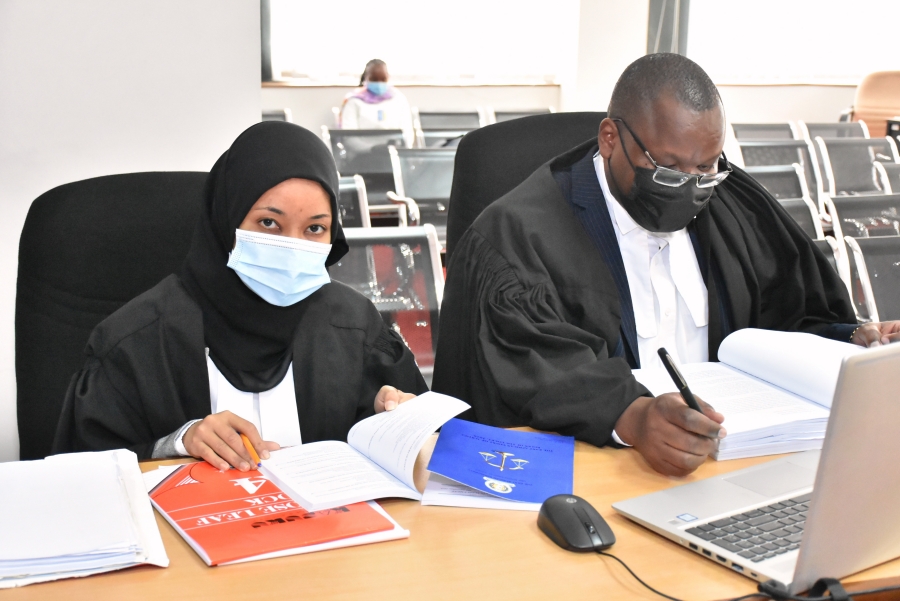
Court hears oral evidence in a case challenging the Govt of Kenya over the alleged eviction of residents from Mau Forest
East African Court of Justice, 28th September 2021: The First Instance Division hears a witness in a matter over alleged eviction of residents from Mau Forest. The case which was filed by Prof Paul Kiprono, a Governor in Kenya sued the government of Kenya for evicted thousands of residents from their homesteads as unlawfully. In his case (Reference No.17 of 2018 Prof. Paul Kiprona vs Attorney General of Kenya)
He further alleges that many were tortured and their homes burnt down and the victims suffered a loss of properties without compensation.
The Applicant further alleges that the eviction caused more than 5000 minors (pupils) out of schools, evicted from their ancestral homes and farms and residing in temporary camps without adequate food, shelter, sanitation, medical care and education. The further urges that the Government has not provided any measures to support the pupils by establishing schools.
The Respondent denies all the allegations and pleads the Reference discloses no cause of action against the Republic of Kenya or its officers and facts pleaded by the Applicant are not only unfounded but also do not constitute any of the matters contemplated under Article 30(1) of the Treaty. Denies that the Government of Kenya through its security organs carried out the alleged forceful evictions, rape, physical torture, destruction of property and homes, violated rights of children and acted contrary to the due process of law and in contravention of the Treaty.
The Government of Kenya contends that the due process of law was followed to remove illegal encroachments into the forest to contain destruction and no eviction done on land adjacent to the forest as alleged. That the process was carried out in a human and lawful manner following public consultations and adequate notices issued beforehand which were obeyed by the evictees who returned to their original homes and not residing in any displaced camps.
Further the Respondent urges that after the evictions, unrelated clashes emerged in some parts of Narok and Nakuru Counties were people got affected including students and minors and the Government resorted to secure peace, provided alternative schools and examination centers for affected pupils. Therefore, the Respondent is not in breach of the Treaty.
The witness who appeared in Court online from Nairobi Mr Godfrey Kipchirichiri Sanga who was working on a History of Mau Forest book project at the time when the evictions took place in August 2018. Other three witnesses will also be produced for further evidence this week.
The matter came before Honourable Justices of the First Instance Division: Justice Yohane Masara (Principal Judge), Justice Audace Ngiye (Deputy Principal Judge), Justice Charles Nyachae, Justice Dr. Charles Nyawello and Richard Muhumuza.
For more information please contact:
Yufnalis Okubo
Registrar
East African Court of Justice
Arusha, Tanzania
Tel: 255-27-2162149
Email: This email address is being protected from spambots. You need JavaScript enabled to view it.
About the East African Court of Justice
The East African Court of Justice (EACJ or ‘the Court’), is one of the organs of the East African Community established under Article 9 of the Treaty for the Establishment of the East African Community. Established in November 2001, the Court’s major responsibility is to ensure the adherence to law in the interpretation and application of and compliance with the EAC Treaty.
Arusha is the temporary seat of the Court until the Summit determines its permanent seat. The Court’s sub-registries are located in the respective National Courts in the Partner States.
Tags: EACJ
